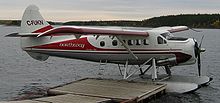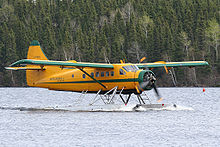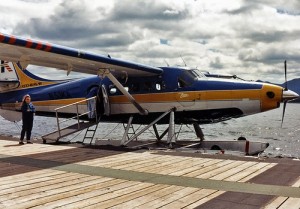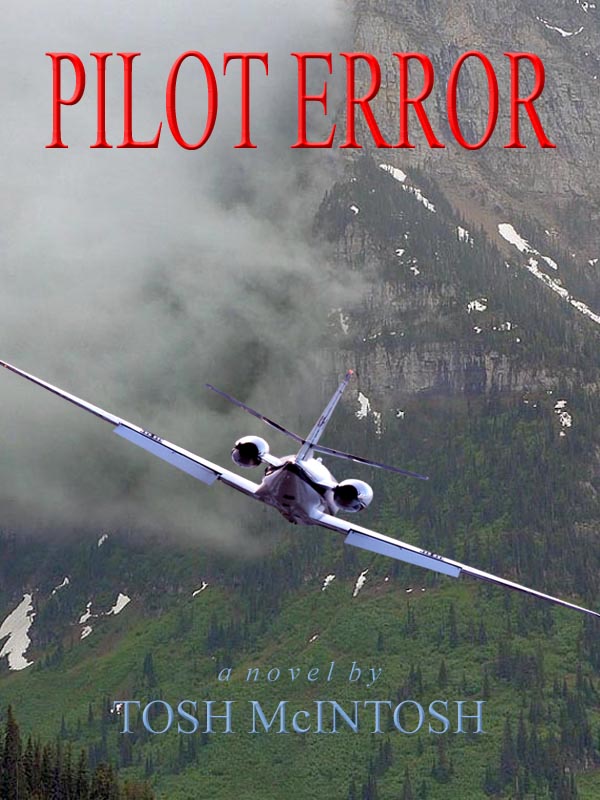 As of this writing, we know very little of the circumstances leading up to the crash of a DHC-3T Super Otter float plane in southwestern Alaska near Bristol Bay as reported on Tuesday, August 10th. This post will in no way attempt to “investigate” the accident. My purpose is only to address a point made in the “About This Blog” page regarding the definition of the word “aviator.” To reiterate, the term camouflages the underlying complexity and variety of the daily challenges pilots face around the world.
As of this writing, we know very little of the circumstances leading up to the crash of a DHC-3T Super Otter float plane in southwestern Alaska near Bristol Bay as reported on Tuesday, August 10th. This post will in no way attempt to “investigate” the accident. My purpose is only to address a point made in the “About This Blog” page regarding the definition of the word “aviator.” To reiterate, the term camouflages the underlying complexity and variety of the daily challenges pilots face around the world.
The Otter, whether single-engine or twin-engine, with piston engines or turboprops, is a workhorse among aircraft designed for “bush” flying. A family member and his son recently returned from a fishing trip to Alaska, and their descriptions of the experience and their surroundings highlight the essential role Otters play in the existence of remote hunting and fishing destinations.
Anything that comes in or goes out does so in an airplane. Guests stay for about a  week, and the “change-out” day is consumed in a flurry of activity to replace those departing with the new arrivals. Everything needed to supply the operation must also be replenished. Remote in this case doesn’t mean sleeping in a tent and cooking your own food over a camp stove. As reported to me, the lodge dining room was more than capable of encouraging guests to pack on a few extra pounds during the stay.
week, and the “change-out” day is consumed in a flurry of activity to replace those departing with the new arrivals. Everything needed to supply the operation must also be replenished. Remote in this case doesn’t mean sleeping in a tent and cooking your own food over a camp stove. As reported to me, the lodge dining room was more than capable of encouraging guests to pack on a few extra pounds during the stay.
No runway, no roads, and no open terrain to accommodate an airplane mean you land on water or you don’t land at all. In this case, the Otters use the swift-flowing river near the lodge, and the docking/undocking process requires careful coordination between the pilot and personnel on the dock to maintain control of the aircraft in the strong current. On change-out day, the dock stays busy from dawn to dusk.
 Bad weather can throw a big monkey wrench into the finely-tuned gears of the operation. Did I mention this is in Alaska? Where the weather can change almost faster than the brain can process it? How does the lodge cope with that uncertainty?
Bad weather can throw a big monkey wrench into the finely-tuned gears of the operation. Did I mention this is in Alaska? Where the weather can change almost faster than the brain can process it? How does the lodge cope with that uncertainty?
First, they contingency plan with sufficient supplies on hand to cover a day or so more than the normal guest’s stay. Second, they are instantly ready to take advantage of any break in the weather. Third, and most important, they rely on the extensive experience and knowledge of the Otter pilots to keep things safe.
These bush pilots have an incredible “stick-and-rudder” skill set. Flying the airplane to a given point in space or on the water is a given because their proficiency never falters. They can probably recognize every ground reference point on the route from the outflow end of the supply chain to the dock on the river. Modern GPS navigation systems aside, with low clouds and poor visibility in rugged terrain, looking down and knowing exactly where you are is key to remaining clear of hazards.
According to this morning’s Statesman, a longtime pilot who lives nine miles from the crash site reported that during his flight through that valley the same day, he had to fly about one-hundred feet above the ground with visibility of about one mile. To describe this as marginal flying weather is a gross understatement. That said, I’m certain most bush pilots regularly fly in weather conditions the rest of us would do well to avoid.
 This is not, however, a matter of drawing a line between pilots who can do the job of a bush pilot and those who can’t. Most competent aviators have the raw talent to learn the specific skills required and become qualified to fly an Otter in the bush. On the other hand, qualification is a far cry from proficiency gained through experience.
This is not, however, a matter of drawing a line between pilots who can do the job of a bush pilot and those who can’t. Most competent aviators have the raw talent to learn the specific skills required and become qualified to fly an Otter in the bush. On the other hand, qualification is a far cry from proficiency gained through experience.
As details of this tragedy emerge, we will be looking for the chain of events leading to cause. And more than likely, we’ll be able identify one or more links, that if removed, might have avoided this final, sad outcome.



2 Responses to Fatal Accident